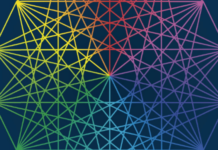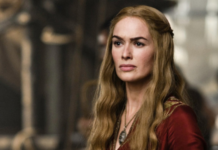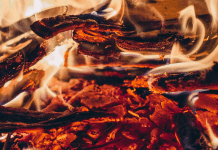I am a spiritual activist, a person who feels that spiritual practice, study, and wisdom are inseparable from the minutiae of day-to-day living. The German-born architect Ludwig Mies van der Rohe once said, “God is in the details.” This is a wonderful slogan for a spiritual activist. The demonstration of our spiritual work must find expression in our every word, choice, and action. We cannot separate yoga, meditation, and deep spiritual work from living: they are inseparable. We cannot separate the spiritual from the worldly. These are language-based distinctions we use to appreciate various aspects of the great Mystery of existence. It is a tragic conceit to think that yoga, meditation, and spiritual wisdom exist outside daily life. They don’t. A flower and its fragrance cannot be separated, because they are innately inseparable.
Along these lines, I’d like to share an excerpt from a recent email I received, and my response.
“I was initially attracted to you and your mailing list because of, for lack of a better word, spirituality — your clarity and accuracy in issues of the Holy, or God, or the Great Mystery. Recently, however, it seems that everything coming from your direction has been your political and anti-war sentiments.
“While I respect your opinion and your right to speak and email whatever you wish, I would just like to let you know that the more you wander into political territory and away from spirituality, the more you alienate me, and perhaps others, as a ‘fan’ of your work. The more you speak about politics, the more my respect for you evaporates.
“My point in writing this is primarily to say that I have seen other spiritual figures whom I respect and admire look foolish and lose respect when they wander away from their true area of expertise, and begin to think that they are experts not only in matters of the spirit, but in everything else as well.”
As I travel around the country talking with many people, and corresponding with many more, I frequently encounter this point of view. I have been rebuked by some yoga and meditation teachers for circulating “An Open Letter of Conscience and Choice,” for “mixing spirituality and political choice.” I understand this, because I was at one time a poster-boy for this perspective. Perhaps that is why I was so attracted to this letter: it showed me the distance I have traveled in my life and consciousness, from that first step long ago when my kundalini opened like an exploding sun.
I do not believe in such things as “spiritual” and “political” as though they were shoes and beer-bottles. They are just notions in the mind and have life and force only to the extent we empower them. The naming of things is a feature of the mind: its nature is to name and separate one thing from another. Beyond the mind, in the realm of Silence, all things are expressions of one Consciousness and have the same name.
I have never felt that I had any “expertise in matters of spirit.” If anything, 35 years of spiritual practice and study have made me acutely aware of all that I don’t know. I must admit, however, that I have encountered the infinite majesty of the Great Mystery and can confirm that it is aptly named. I also confess to knowing that I am a portion of the Great Mystery and to feeling within my blood the murmurs of a universal heart. In this heart I live as a song of Silence. In this song there are no verses of murder and the mayhem of war. I am not an expert in spiritual or political matters; but I constantly hear the murmur of the universal heart within my blood, telling me that I must pour my heart into this world, that I must live in this world as a strong emblem of love and peace.
My Merriam-Webster dictionary defines politics as “the totality of relationships between people living in society, especially involving power, authority, and influence ” To say that one should refrain from politics is like saying that one should refrain from breathing. It is not possible. From cradle to grave, we exist in relationship. Our very life comes from others. Our food comes from others. Our clothes come from others. We are affected by others, as they are by us. Think of your life: it is nothing but relationship, and each relationship includes negotiations and transactions of power, authority, and influence.
How are we to live in these relationships? To me, this question is of equal weight and importance to “Who am I?” This latter question is often regarded as spiritual, while the former is termed worldly. Nonsense.
During the last few years in America, we seen the growth and popularization of ancient nondual wisdom traditions like Vedanta, Kashmir Shaivism, and Dzogchen. This is good news. However, with popularization comes the danger of distortion. One such distortion lies in thinking that the answer/resolution to the question “Who am I?” represents the summit of Self-Realization. It does not.
“Who am I?” is but half of the true question; the other half is “How shall I live?” The answer/resolution to this true question is the gateway to realized Self-expression.
If one only asks “Who am I?” then one has but one leg, one hand, one eye, and half a heart. I want to be whole, for I am whole. So I also ask, “How shall I live?” Asking this gives me my second leg, second hand, second eye, and whole heart.
“Who am I? How Shall I live?” is really one question, one breath, one path, one realization. Insight and action are one movement; realization and expression are one movement. One cannot separate nondual perception and knowledge from its behavioral corollary. Pure consciousness and the world are not different. Each exists as reflections of the other. Therefore, knowledge and action arise together, just as form and formlessness arise together. The perception of self, other, and world as vibrations of pure consciousness is only the foothills, not the high mountains.
“Who am I?” is the easier part of the koan: I am that which is beyond thought and concept; I am that eternal Silent presence which pervades the entire cosmos and which lives in and as all things.
Okay. Now what? Now comes the hard part: “How shall I live?” Taking up this question with sincerity and commitment is the true beginning of realized Self-expression, the true beginning of spiritual maturity and wisdom. What, in fact, does a life of Oneness look like? How shall I live? From whom and from where shall I receive money? To whom and to what shall I give my money? For whom shall I vote? What car shall I drive? What is my civic responsibility to my community, country, and the world? How much responsibility do I take for the condition of the world, the world of which I am a part?
These are just a few of the questions that one must ask and answer every day. There are many more. What are they? Please spend some time with these questions, let the asking and the listening for answers affect how you live your life. As with “Who am I?” do not be content with first answers. Dig deep. Challenge your beliefs. Challenge what your teachers have told you. Challenge your complacency.
Asking “Who am I?” alone leads only to self-absorption and spiritual narcissism; it does not lead to wisdom or to freedom. In your spiritual practice, if you do not already do so, please begin asking the true and correct question: “Who am I? How shall I live?”
Robert Rabbin is a writer, speaker, and spiritual activist. He is the author of numerous books and articles, and the creator of TruthForPresident.org, an online spiritual activism center. For contact information, please visit www.robrabbin.com or www.truthforpresident.org.
© 2004/Robert Rabbin/All rights reserved








